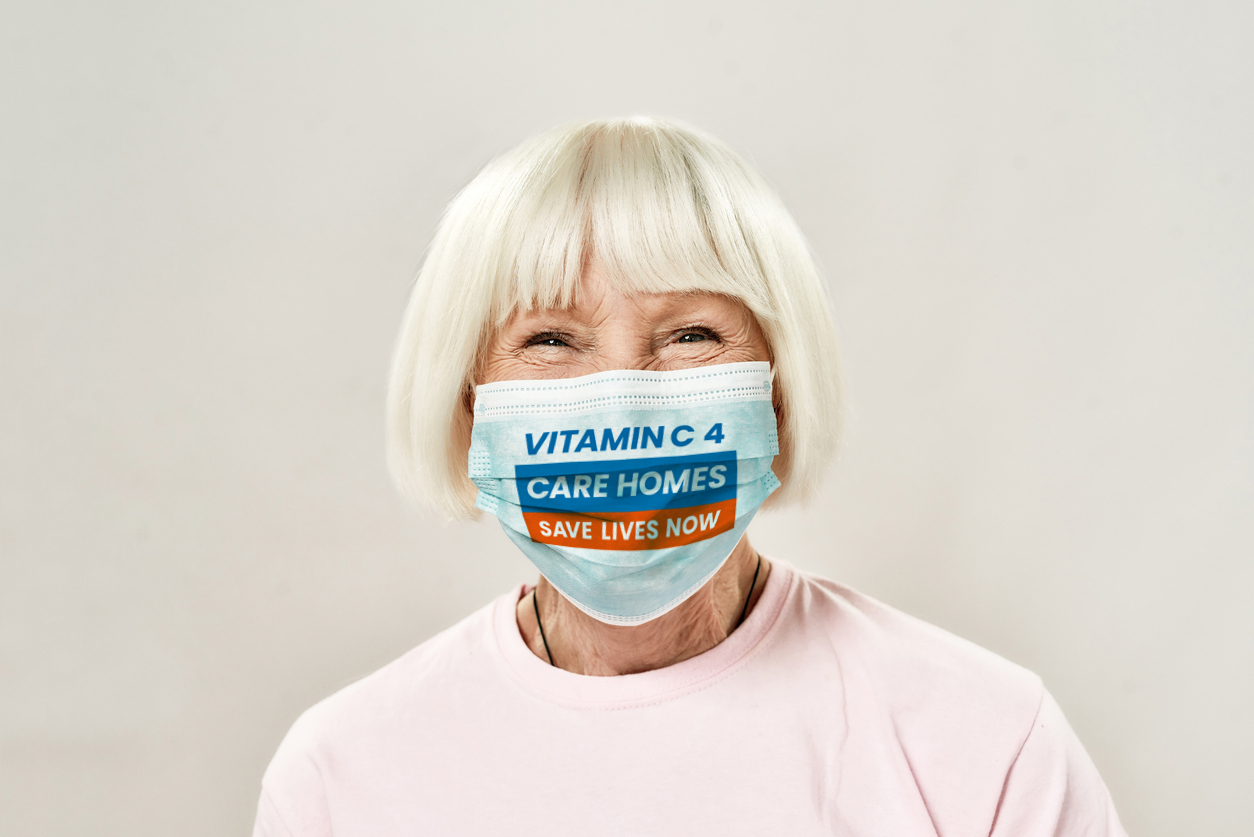A new study, VitaC4Care, will test how much vitamin CWhat it does: Strengthens immune system – fights infections. Makes collagen, keeping bones, skin and joints firm and strong. Antioxidant, detoxifying pollutants and protecting against… is needed to achieve normal levels in care home residents.
One of the most vulnerable groups susceptible to COVID-19 is older people. In the UK, almost half (47%) of all COVID-19 deaths in the first wave were in care homes 1. In the US the Covid Tracking Project 2 estimates a third (34%) of deaths were in care homes.
Could a lack of vitamin C, which is essential for optimising immune function and fighting viral infections 3, be a major contributing factor? 3
The VitaC4Care study is led by Professor Phyo Myint, Clinical Chair in Medicine of Old Age and Dr Alan Sneddon from the Rowett Institute’s Metabolic Health Unit, University of Aberdeen, UK, together with Dr Stavroula Kastora from NHS Grampian and vitamin C researcher Associate Professor Anitra Carr from New Zealand’s University of Otago.
The latest UK government’s National Diet and Nutrition Survey estimates that almost half a million people over 65 have overt vitamin C deficiency (i.e. blood levels <11 µmol/L) 5. The survey, however, excludes care home residents.
A study from the MRC Human Nutrition Research Unit in Cambridge in the 1990’s indicated that an estimated 40% in care homes had deficient vitamin C levels. 6 This study, now over 20 years old, is the only estimate of how widespread deficiency is in care homes.
“We have no idea how much vitamin C our vulnerable elderly actually need to be fully protected.” says Associate Professor Anitra Carr, who has teamed up with professors and doctors from the University of Aberdeen, the Rowett Institute and NHS Grampian to conduct the landmark VitaC4Care study in care homes across Scotland.
“This trial will help to establish optimal intakes of vitamin C for this important and often forgotten group within our society.’ says Professor Carr.
People deficient in vitamin C are particularly susceptible to severe respiratory infections, such as pneumonia 7 and COVID-19 which cause vitamin C levels to drop dramatically due to increased need 8.
A survey of elderly Scottish patients hospitalized with respiratory infections found that 40% had deficient levels of vitamin C 9. Critical covid patients have been reported to have depleted vitamin C the level of which predicts their chances of survival 4. Older people who are already low in vitamin C before infection may not survive as a result.
Professor Jeanne Drisko, an expert in vitamin C from the University of Kansas Medical Center, USA says, “Aging individuals are particularly vulnerable to vitamin C deficiency and an effort to define the extent of deficiency is urgently needed.”
According to estimates made by the Linus Pauling Institute at the University of Oregon, their needs may be as high as 400mg a day, ten times the recommended intake in the UK. That equates to six oranges a day, hence supplementation may be essential for older people and care home residents.
The VitaC4Care study will start in Scotland in early autumn 2021 provided sufficient funds (£20,000) are raised. Please bew generous and donate here to the VitaC4Care Crowdfunder.
FIND OUT MORE
Watch Patrick Holford’s interview with Robert Verker PhD for Alliance for Natural Health International. on the VitC4Care Study – Vitamin C in Care Home Study. The Cheapest Way to Save Lives? Why crowdfunding is urgently needed.
SUPPORT THE CAUSE
The not-for-profit www.vitaminC4covid.com project is crowdfunding to help fund the vital VitaC4Care research. For more details and to make a donation visit the VitC4Care Crowdfunder.
References
1. Oliver D. David Oliver: Let’s be open and honest about covid-19 deaths in care homes. BMJ. 2020;369:m2334.
3. Carr AC, Maggini S. Vitamin C and immune function. Nutrients. 2017;9(11):E1211.
4. Holford P, Carr AC, Jovic TH, Ali SR, Whitaker IS, Marik PE, Smith AD. Vitamin C – an adjunctive therapy for respiratory infection, sepsis and COVID-19. Nutrients. 2020;12(12).
5. Bates B, Collins D, Cox L, Nicholson S, Page P, Roberts C, Steer T, Swan G. National Diet and Nutrition Survey Years 1 to 9 of the Rolling Programme (2008/2009 – 2016/2017): Time trend and income analyses. In: England PH, editor. London: Public Health England; 2019. p. 56 pages.
6. Bates CJ, Prentice A, Cole TJ, van der Pols JC, Doyle W, Finch S, Smithers G, Clarke PC. Micronutrients: highlights and research challenges from the 1994-5 National Diet and Nutrition Survey of people aged 65 years and over. Br J Nutr. 1999;82(1):7-15.
7. Hemilä H. Vitamin C and infections. Nutrients. 2017;9(4):E339.
8. Carr AC. Vitamin C in pneumonia and sepsis. In: Chen Q, Vissers M, editors. Vitamin C: New Biochemical and Functional Insights. Oxidative Stress and Disease. Boca Raton, FL CRC Press/Taylor & Francis; 2020. p. 115-35.
9. Hunt C, Chakravorty NK, Annan G, Habibzadeh N, Schorah CJ. The clinical effects of vitamin C supplementation in elderly hospitalised patients with acute respiratory infections. Int J Vitam Nutr Res. 1994;64(3):212-9.


Comments
Join the Conversation on our Facebook Page